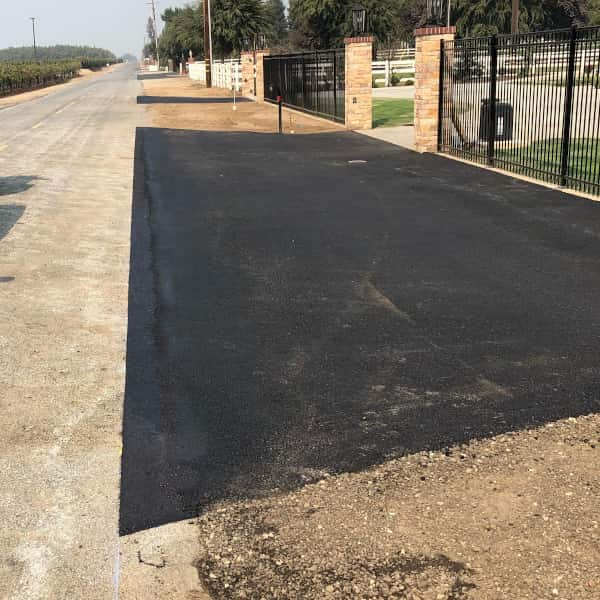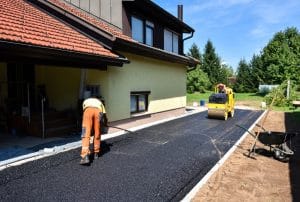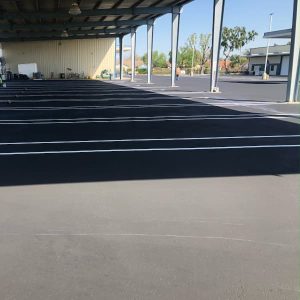
Asphalt is a popular material used in many construction projects, from highways to parking lots. It’s durable, long-lasting and cost-effective, but not all asphalt is the same. Each asphalt mix has unique properties that make it better suited for certain projects than others. Whether you’re a contractor or a homeowner looking to pave their driveway, understanding the different types of asphalt mixes can help you choose the right one for your needs. In this article, we’ll explore the various kinds of asphalt mixes available and share tips on how to choose the best one for your project. So, if you’re ready to dive into asphalt mixes, let’s get started!
Definition Of Asphalt Mixture
Asphalt mixture is a combination of aggregate material and asphalt binder. The mix can be tailored to meet specific requirements such as traffic load, temperature, and environmental conditions. Asphalt mixtures are designed to provide a durable and flexible surface that will resist traffic wear and tear.
The amount of asphalt binder required in the mix varies depending on the type of mixture used. Hot Mix Asphalt (HMA) requires more asphalt binder than Cold Mix Asphalt (CMA). HMA is typically used for heavy-duty applications, while CMA is often used for lighter duty applications such as patching or filling potholes. The aggregate material also varies depending on the type of mix being used. For example, HMA may use crushed stone or gravel, while CMA may use sand or recycled materials like old pavement.
The design of an asphalt mixture must take into account various factors such as climate, loading conditions, weather conditions, existing pavement condition, desired life expectancy and cost effectiveness. Depending on these factors different types of asphalt mixes can be created to meet the specific needs of an application.
Overview Of Uses of Asphalt
Asphalt mixes are used for a variety of purposes, both residential and commercial. Depending on the project, one of many asphalt mixtures can be used to complete it. There are three common types: hot mix asphalt (HMA), warm mix asphalt (WMA), and cold mix asphalt (CMA).
The most widely-used type of asphalt mixture is HMA. This type is heated to a high temperature, usually over 300°F, prior to being used. It has a strong resistance to wear and tear, making it ideal for roads with heavy traffic or for more permanent driveways that need to last several years. Additionally, it’s able to resist water damage since the heating process causes the molecules in the mixture to bond together tightly.
WMA is similar to HMA but requires less energy during production since it’s not heated as much. This makes WMA more environmentally friendly and cost effective than HMA. WMA is best suited for areas with light traffic or residential projects where aesthetics are important.
CMA does not require any heat during production and can be produced quickly due to its fast curing time after application. It’s often used in remote locations or areas without access to an asphalt plant because it doesn’t require mixing facilities onsite. CMA works well in colder climates because it can resist cracking from freezing temperatures better than other types of asphalt mixtures.
Each type of asphalt mixture has its own unique characteristics which make them suitable for different projects. It’s important that you consider your needs before selecting the proper type of asphalt mix for your project so you get the most out of your investment.
Characteristics Of Different Mixes
Asphalt mixes come in different varieties, each with its own unique characteristics. Hot mix asphalt is the most common and popular type of asphalt mix used. It is made with heated aggregate, binder, and filler mixed together at high temperatures and then applied to a road surface. This type of mix has good compaction properties, making it suitable for use on highways and other high-traffic areas. Cold mix asphalt is another type of asphalt that can be used for low-traffic roads or for temporary patches. It is composed of a mixture of emulsion and aggregate that does not need to be heated before application.
Warm mix asphalt is becoming more popular due to its lower emissions during production and application compared to hot mix asphalt. It is created by adding special chemicals to the hot mix asphalt during production that reduce the viscosity of the binder, allowing it to be applied at lower temperatures than regular hot mix asphalt. Warm mix also has improved compaction properties and better adhesion between layers than cold mix.
Performance graded (PG) asphalt is often used on roads that require greater flexibility or durability than what either hot or warm mixes can provide. This type of mix uses a special polymer-modified binder to achieve enhanced performance characteristics such as greater resistance to rutting, cracking, fatigue, thermal shock, and moisture damage. PG mixes are generally more expensive but offer superior performance compared to other types of asphalt mixes.
In conclusion, asphalt mixes are a versatile and effective material for driveway paving and parking lot paving projects. By understanding the different types of asphalt mixtures and their characteristics, you can choose the one that best fits your needs. Hot-mix asphalt is an economical choice and provides excellent durability. Warm-mix asphalt is better suited to colder climates, while stone matrix asphalt and open graded friction course offer superior resistance to wear and tear. Gap graded mixes provide increased flexibility in design, allowing for greater customization. Each type of asphalt mixture has its own benefits and drawbacks, so it’s important to carefully consider your options before deciding on a mix. I hope this article has given you a better understanding of the different kinds of asphalt mixtures available so that you can make an informed decision about which mix to use for your project.



